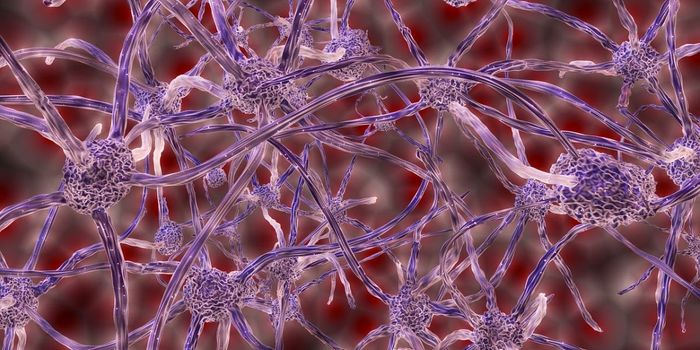Why Alzheimer's may be a Sleep Disorder
Alzheimer’s disease is a form of dementia in which amyloid-beta protein builds up in the brain, killing off surrounding neurons and causing cognitive decline. Now however, researchers have found that build-ups of amyloid-beta plaque may be more linked to sleep quality than previously thought.
Conventional knowledge would lead people to think that amyloid-beta build ups would most likely occur in the area of the brain designated for the storage of long-term memories- the hippocampus. Brain imaging techniques however have shown that this isn’t true- and that in fact, most amyloid accumulation happens around the mid-region of the frontal lobe- an area more linked to non-REM and slow-wave sleep (deep sleep) than memory.
Of course, we have known for some time that sleep plays a vital role in our formation of memories- oftentimes consolidating our short-term memories for longer-term storage when we are not bombarded with new information. A study carried out in 2012 has even shown that older adults are more likely to correctly recall a string of words following a good night’s sleep (specifically non-REM sleep) than one of poorer quality (REM sleep). Thus, it seems logical that the ability to have deep sleep directly corresponds with memory recall- something that is otherwise tampered with in cases of Alzheimer’s.
To investigate this link further, researchers at the UC Berkeley designed a study to examine the link between sleep and Alzheimer’s more directly. Conducting the same word-memorization study as above, they included patients diagnosed with Alzheimer’s, and used PET scans to understand how each patient’s memory performance correlated with their sleep quality and presence of amyloid-beta plaques in their brains.
In the end, they found that patients with the highest build-ups of amyloid plaque in the mid-frontal lobe also tended to have the least non-REM sleep, and the worst memory performance. The researchers thus concluded that poor quality sleep may be more of a direct result from the amyloid-beta buildup than memory loss, and that, any losses in memory may be more of a byproduct of poor sleep.
Although more research is needed to confirm this link, these results nevertheless suggest that treating sleep patterns may be able to help stave off, or even prevent Alzheimer’s. Such a suggestion comes alongside other studies too in which cognitive decline among Alzheimer’s patients was significantly reduced by taking medication to treat sleep apnea, and melatonin, a supplement used to improve sleep quality.
Sources: Psychology Today, PMC and Nature









